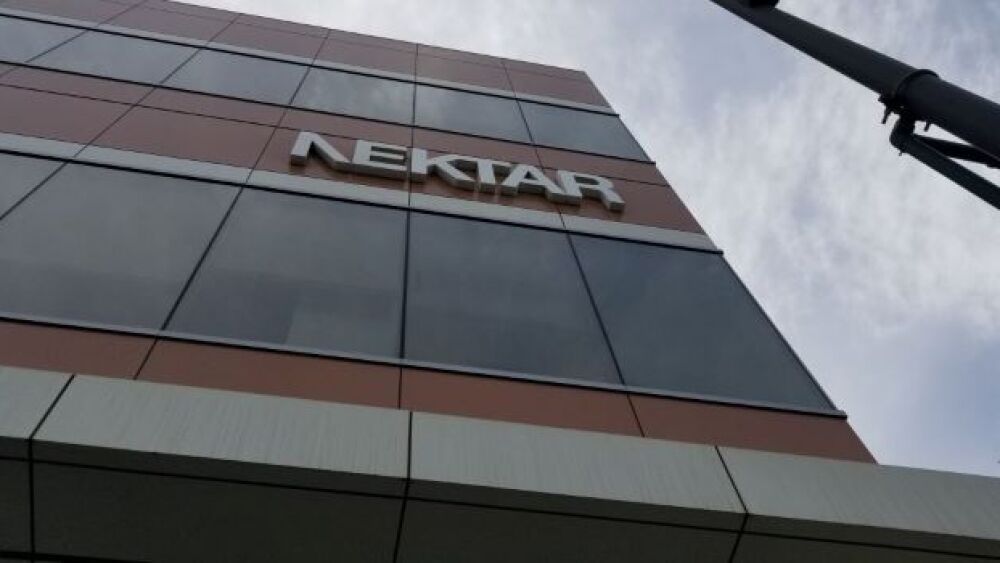After the announcement, Nektar shares dropped 36%, going from $6.47 per share to $4.16.
Smith Collection/Gado/Getty
Shares of Nektar Therapeutics plunged after a disappointing clinical announcement on Monday. This has prompted the cancellation of two trials and left the company scrambling to find solutions.
Nektar and Bristol Myers Squibb announced data from their joint Phase III PIVOT IO-001 study, which was testing Nektar’s immunotherapy drug bempegaldesleukin in combination with BMS’s Opdivo (nivolumab) compared with Opdivo alone to treat unresectable or metastatic melanoma. Unfortunately, the study did not meet its primary endpoints.
The results were so dismal that BMS and Nektar not only canceled the PIVOT IO-001 study, they also discontinued their PIVOT-12 study, another Phase III trial where the partners were evaluating the same drugs but for adjuvant melanoma.
The announcement is undeniably more difficult for Nektar. BMS had significant revenues of more than $46 billion in 2021, and has a diverse pipeline of products. However, Nektar, which focuses on oncology and immunology diseases, only brought in $101.9 million in revenue last year.
After the announcement, Nektar stocks plunged 36%, dropping from $6.47 per share to $4.16. The collaboration with BMS had been a deal worth over $1 billion when the partnership was started in 2018.
This was also just the latest in several tough announcements Nektar has had to make. When the company shared its Q4/full-year 2021 financial report just a few weeks ago, Nektar had a year net loss of $523.8 million. Its 2021 revenue was also around $50 million lower than it was in 2020, “due to the recognition of $50.0 million in total milestones from Bristol-Myers Squibb for the initiation of registrational trials of bempegaldesleukin plus Opdivo® in adjuvant melanoma,” the press release noted.
Even before this, Nektar was struggling. In May 2019, the company created a new subsidiary called Inheris Biopharma to commercialize a new opioid product, NKTR-181. In January 2020, the U.S. Food and Drug Administration voted unanimously 27-0 to not approve the drug. The move dropped shares of Nektar by 14.5% and forced the company to eat $45.2 million in impairment charges.
Still, there’s light at the end of the tunnel. Nektar has a few other products that, if successful, could keep the company afloat.
NKTR-255 is currently in Phase I/II testing for blood cancers and solid tumors, while NKTR-358 is being tested in patients with lupus, ulcerative colitis and atopic dermatitis in a collaboration with Eli Lilly. Nektar is also partnering with Merck on a late-stage head and neck cancer study. These partnerships have already garnered Nektar around $800 million. If they prove successful, the alliances could help overcome this loss.
Nektar also expects to announce top-line data in two more studies with its bempegaldesleukin drug in renal cell carcinoma and bladder cancer within the next few weeks.
In the meantime, Nektar is scrambling to prop up the worth of its stocks with a restructure.
“Today’s results will obviously mean that we have to make changes to our business operations and the structure of Nektar,” said Nektar CEO Howard Robin. “These changes will be substantial and will be difficult to undertake, but we’re preparing a plan that has a goal of establishing a minimum cash runway through the end of at least 2024 with our existing cash balance.”





